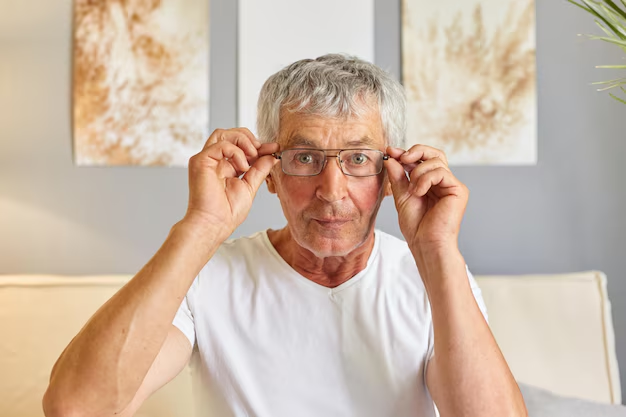Considering Pausing Eye Injections for Macular Degeneration? Here’s What You Need to Know
In recent years, the management of macular degeneration has witnessed remarkable advancements. Particularly, the introduction of eye injections has offered a beacon of hope for countless patients. However, life circumstances and personal choices might make you consider stopping these treatments. But what could happen if you decide to halt eye injections for macular degeneration? This article will explore the potential outcomes, the risks involved, and how to make informed decisions about your eye health.
Understanding Macular Degeneration
What Is Macular Degeneration?
Macular degeneration is a common eye disorder among people aged 50 and older. It causes blurred or reduced central vision due to thinning of the macula, the part of the retina responsible for clear vision in your direct line of sight. The two main types are dry and wet macular degeneration.
Dry Macular Degeneration: This is more common and less severe than the wet type. It progresses slowly and is characterized by the thinning of macular tissues and the buildup of drusen (tiny yellow deposits).
Wet Macular Degeneration: Less common but more severe, this type occurs when abnormal blood vessels grow under the retina and macula, leading to leakage of fluid or blood.
Importance of Eye Injections
Eye injections, specifically anti-VEGF (vascular endothelial growth factor) therapies, have become a cornerstone in the treatment of wet macular degeneration. These injections help reduce the growth of abnormal blood vessels and prevent further damage to the macula, thus stabilizing or even improving vision.
What Happens If You Stop Eye Injections?
Immediate Consequences
Halting eye injections can lead to various outcomes, with the most immediate being a potential worsening of vision. The abnormal blood vessels may start to regrow, causing fluid leakage and damage, which can accelerate the deterioration of sight. For many patients, consistent injections are crucial to maintaining the vision they have left.
Long-term Effects
Without ongoing treatment, the long-term prognosis can be troubling:
Increased Risk of Vision Loss: The unchecked progression of macular degeneration can result in significant vision loss over time.
Reversal of Improvements: Any visual acuity improvements or stabilization achieved during treatment may gradually reverse.
Progression to Severe Stages: Without intervention, there's a possibility of progressing to more advanced stages of macular degeneration, making future treatments less effective.
Psychological and Quality of Life Impacts
The deterioration of vision can significantly impact daily life and mental health:
Reduced Independence: Challenges in performing daily activities, from reading to driving, can arise, affecting independence.
Emotional Strain: Vision loss can lead to emotional stress, anxiety, or depression as one copes with the potential impact on lifestyle and independence.
Considering the Reasons for Stopping Treatment
Various factors might lead someone to consider stopping their eye injections:
Financial Constraints
The cost of treatments can be a significant burden. It’s essential to explore insurance options, governmental aid programs, or financial assistance that clinics might offer.
Discomfort or Fear
Some individuals experience discomfort with injections or anxiety about the procedure. Discussing these concerns with a healthcare provider might reveal alternative approaches to managing discomfort or anxiety.
Perceived Lack of Improvement
Patients may feel that treatments aren’t providing the expected results. In such cases, it’s crucial to have open discussions with an eye specialist about treatment effectiveness and possible adjustments.
Your Options and Next Steps
Regular Monitoring
If you decide to stop injections, maintaining regular appointments with your eye doctor is vital for monitoring the progression of the disease.
Lifestyle Adjustments
Adapting your lifestyle can help manage macular degeneration:
Nutrition: Diet plays a role in eye health. Consuming foods rich in antioxidants, zinc, and vitamins C and E may help slow progression.
Vision Aids: Using magnifying glasses or other vision aids can maintain quality of life despite deteriorating sight.
Exploring Alternative Treatments
Emerging treatments and clinical trials continuously expand available options. Discussing these with an eye care provider may present new paths forward.
Empowering Yourself for the Journey Ahead
Understanding the potential consequences of halting treatment equips you to make informed choices about managing macular degeneration. While the journey can be daunting, proactive steps and open communication with healthcare professionals provide a foundation for preserving as much sight as possible.
Summary: Keep Your Vision Front and Center
📌 Consistency is Key: Maintaining regular eye injections is crucial for controlling wet macular degeneration.
🔍 Explore Financial Aid: Seek assistance programs that could alleviate treatment costs.
🤝 Talk to Your Doctor: Openly discuss any feelings of discomfort or concerns about treatment efficacy.
🥗 Prioritize Nutrition: A balanced diet rich in eye-healthy nutrients can support overall vision health.
🔄 Consider Alternatives: Stay informed about new treatments and technologies that may offer additional hope.
By staying informed and engaged in your treatment journey, you can navigate the challenges of macular degeneration with confidence and hope for better management of your condition.

Related Articles
- Can Macular Degeneration Be Reversed
- How Fast Does Macular Degeneration Progress
- How To Prevent Macular Degeneration
- How To Reduce Macular Degeneration
- Is Macular Degeneration Hereditary
- Is Macular Degeneration Inherited
- What Are The 1st Signs Of Macular Degeneration
- What Causes Macular Degeneration
- What Does Macular Degeneration Look Like
- What Is a Macular Degeneration
